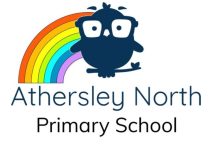Economic & Financial Education
"A budget is telling your money where to go instead of wondering where it went." - Dave Ramsey
Whilst financial education is not statutory to the primary school curriculum, it is part of the citizenship element of the PSHE curriculum. At ANPS, we believe that the process of educating children in financial capability should be introduced to our primary aged pupils. We acknowledge that attitudes and life skills are being formed within the primary years and we know that our pupils are aware of money from an early age.
Research suggests that financial habits in adulthood are established by the age of just seven years old.
Financial education is very closely linked to the Design Technology curriculum; across all key stages we teach the importance of the home economics element of Textiles. We teach children the progressive life skills required through basic stitches to sew and repair items of clothing.
Throughout the Design Technology curriculum, across all key stages, we teach the importance of the home economics element of Food Technology. We teach children the progressive life skills required to understand healthy foods and nutrition, to become competent in a range of cooking techniques and to learn the basic skills required to cook a range of dishes so that they are able to feed themselves and others a healthy, varied diet.
We have worked closely with our local community shop and outreach centre so that our pupils can consider value for money by sourcing items and using these to prepare healthy, cost effective meals.
Through a dedicated ‘My Money Week’, our aim at ANPS is to ensure that pupils understand;
- The importance of distinguishing between wants and needs and prioritising needs before wants
- How careless spending on wants can lead to later money problems
- What a budget is and planning a budget
- The different ways of paying for goods and services
- The importance of saving for emergencies and an awareness of the different ways to save
- The skills and qualifications required for different occupations
- Awareness of the different levels of pay between occupations and the reasons why there are pay differences
- The need to plan ahead in regards to a career
- The difference between gross and net pay
- What is meant by financial risk
- Why people borrow money and where they go to borrow money
- The difference between affordable and problem borrowing
- What gambling is and the dangers of gambling
- How we decide if something is “good value”
- How advertising influences consumers
- What is meant by entrepreneurship and how ideas can be developed into a business
